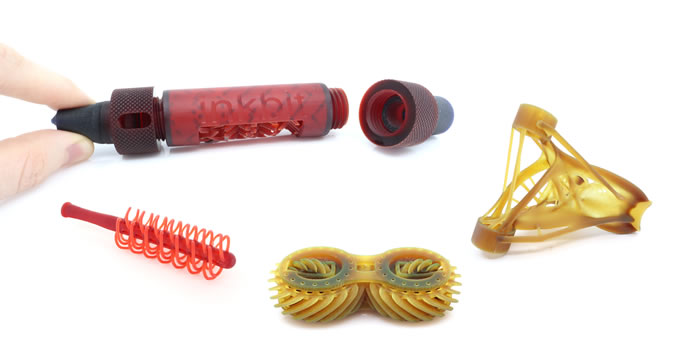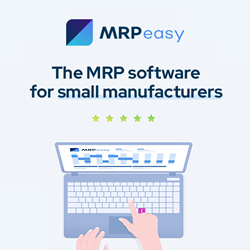Inkbit Raises $12 Million in Equity Round Led by Stratasys and DSM Venturing to Propel Production of Its Vision-Based, Artificial Intelligence Additive Manufacturing Platform

Inkbit, the company that built the first 3D printer driven by vision-based feedback control and artificial intelligence, announced today the closing of a $12M equity financing round led by Stratasys and DSM Venturing, the venture capital arm of Royal DSM, with additional participation from Ocado, 3M and Saint-Gobain. This new capital raise follows on the company’s first $2.8M round led by IMA, a leader in pharmaceutical processing equipment, closed in December of 2017. Inkbit is also funded by the Defense Advanced Research Projects Agency (DARPA), the National Science Foundation and MassVentures.
Proceeds will be used to industrialize Inkbit’s additive manufacturing system to fit the requirements of multi-material and volume manufacturing, expand the set of materials for medical, life sciences and robotics applications and install the first units for customers.
“We are excited to partner with such an extraordinary team of industry-leading players and impressed by their entrepreneurial spirit and commitment to innovation,” said Davide Marini, Inkbit cofounder and CEO. “The composition of this syndicate was chosen to maximize the speed of development and commercialization of our platform, with each investor bringing to us their unique expertise in equipment manufacturing, high-performance materials and applications in robotics, medical devices and life sciences tools. Our value proposition to customers is simple: we are adding a layer of machine vision and machine learning to material jetting, increasing its accuracy, reliability and enabling its use with production-grade materials.”
“As pioneers of jetting-based additive manufacturing solutions, we are excited to help Inkbit bring their technology to the factory floor. Vision-based feedback control and artificial intelligence will take additive manufacturing to a whole new level and will help to enable its widespread use for production," said Ronen Lebi, Vice President of Corporate Development at Stratasys.
"Materials always play a major role in industrializing breakthrough technologies and in additive manufacturing they become absolutely critical. We are delighted to have Inkbit in our investment portfolio and look forward to helping them develop the best materials for customers world-wide," said Pieter Wolters, Managing Director of DSM Venturing.
2D material jetting is currently used across a range of industrial processes, such as ceramic and textile manufacturing. While its 3D counterpart is well proven in prototyping applications, limited material choice has restricted its use in production. The contactless material jetting process developed by Inkbit eliminates the need for planarization and enables printing of multi-material parts with production-grade materials.
Inkbit has begun working with customers, such as Johnson & Johnson, through an early access program to develop an initial set of applications. The company plans to release the first systems in 2021 to select customers. Inkbit machines will provide customers with volume production capabilities, higher accuracy and automated quality assurance for every printed part.
Joining Inkbit’s Board of Directors will be Guy Menchik, VP of R&D at Stratasys, Luda Kopeikina, Director of DSM Venturing, Paul Clarke, Ocado’s CTO and Magnus René, CEO at Ovzon and formerly CEO at Arcam.
About Inkbit
Inkbit strives to eliminate the existing chasm between prototyping and manufacturing to enable rapid, on-demand manufacturing of multi-material, end-use products. Using computer science to improve manufacturing, Inkbit developed the first 3D printer powered by machine vision and artificial intelligence to meet the speed, precision and reliability requirements of volume production. Based in Medford, MA, Inkbit is a 2017 spinout of the Computer Science and Artificial Intelligence Laboratory (CSAIL) at MIT. Inkbit’s technology is based on research led by Prof. Wojciech Matusik and intellectual property licensed from MIT. Early supporters include the MIT Deshpande Center, the MIT Industrial Liaison Program (STEX25) and The MIT Engine Network. To learn more about Inkbit, please visit https://inkbit3d.com.
Comments (0)
This post does not have any comments. Be the first to leave a comment below.
Featured Product

